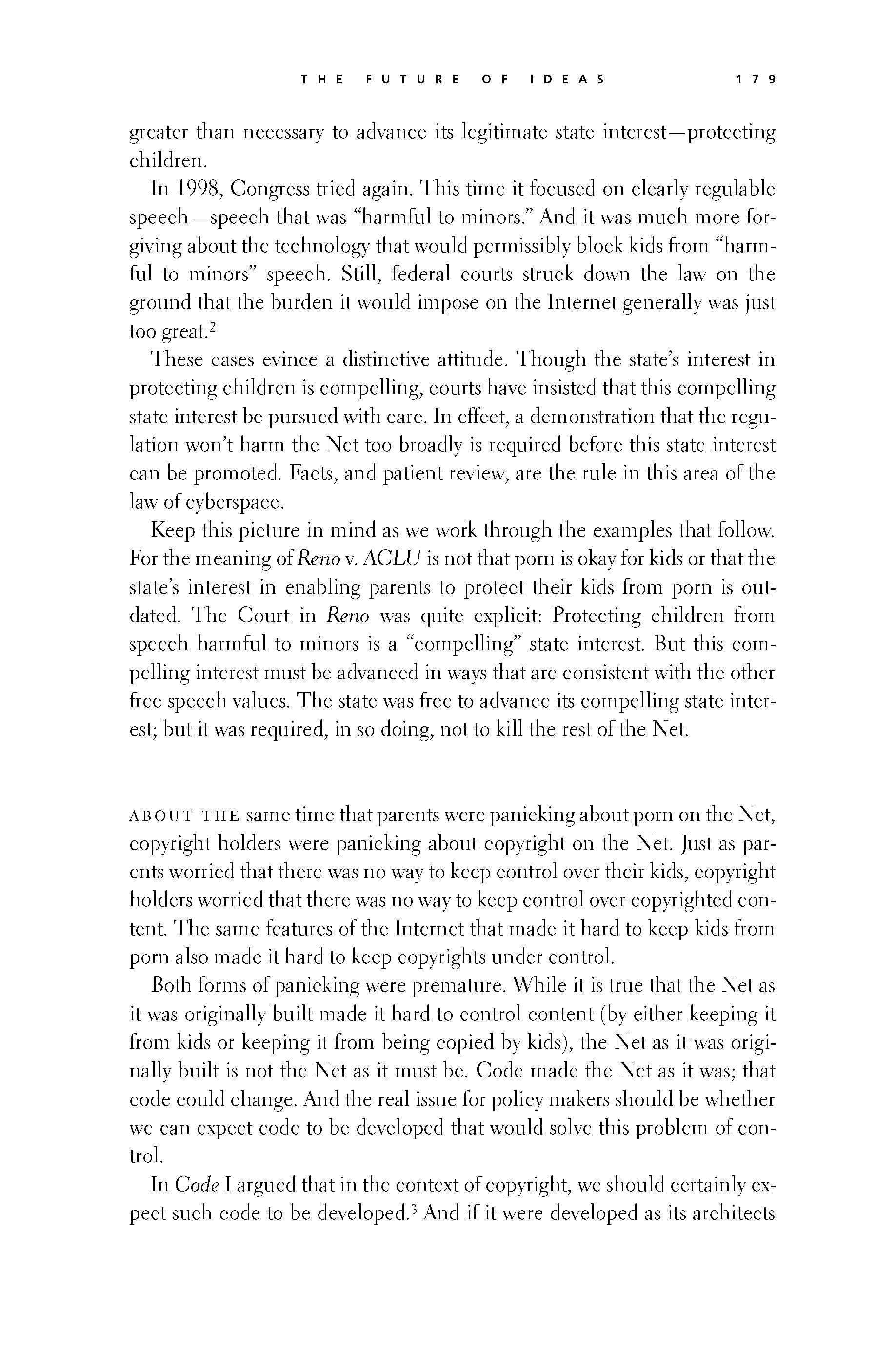 p178 _
-chap- _
toc-1 _
p179w _
toc-2 _
+chap+ _
p180
p178 _
-chap- _
toc-1 _
p179w _
toc-2 _
+chap+ _
p180
greater than necessary to advance its legitimate state interest -- protecting
children.
In 1998, Congress tried again. This time it focused on clearly regulable
speech -- speech that was "harmful to minors." And it was much more for-
giving about the technology that would permissibly block kids from "harm-
ful to minors" speech. Still, federal courts struck down the law on the
ground that the burden it would impose on the Internet generally was just
too great.[11-2]
These cases evince a distinctive attitude. Though the state's interest in
protecting children is compelling, courts have insisted that this compelling
state interest be pursued with care. In effect, a demonstration that the regu-
lation won't harm the Net too broadly is required before this state interest
can be promoted. Facts, and patient review, are the rule in this area of the
law of cyberspace.
Keep this picture in mind as we work through the examples that follow.
For the meaning of _Reno_ v. _ACLU_ is not that porn is okay for kids or that the
state's interest in enabling parents to protect their kids from porn is out-
dated. The Court in _Reno_ was quite explicit: Protecting children from
speech harmful to minors is a "compelling" state interest. But this com-
pelling interest must be advanced in ways that are consistent with the other
free speech values. The state was free to advance its compelling state inter-
est; but it was required, in so doing, not to kill the rest of the Net.
///\\\
About the same time that parents were panicking about porn on the Net,
copyright holders were panicking about copyright on the Net. Just as par-
ents worried that there was no way to keep control over their kids, copyright
holders worried that there was no way to keep control over copyrighted con-
tent. The same features of the Internet that made it hard to keep kids from
porn also made it hard to keep copyrights under control.
Both forms of panicking were premature. While it is true that the Net as
it was originally built made it hard to control content (by either keeping it
from kids or keeping it from being copied by kids), the Net as it was origi-
nally built is not the Net as it must be. Code made the Net as it was; that
code could change. And the real issue for policy makers should be whether
we can expect code to be developed that would solve this problem of con-
trol.
In _Code_ I argued that in the context of copyright, we should certainly ex-
pect such code to be developed.[11-3] And if it were developed as its architects
[[179]]
p178 _
-chap- _
toc-1 _
p179w _
toc-2 _
+chap+ _
p180